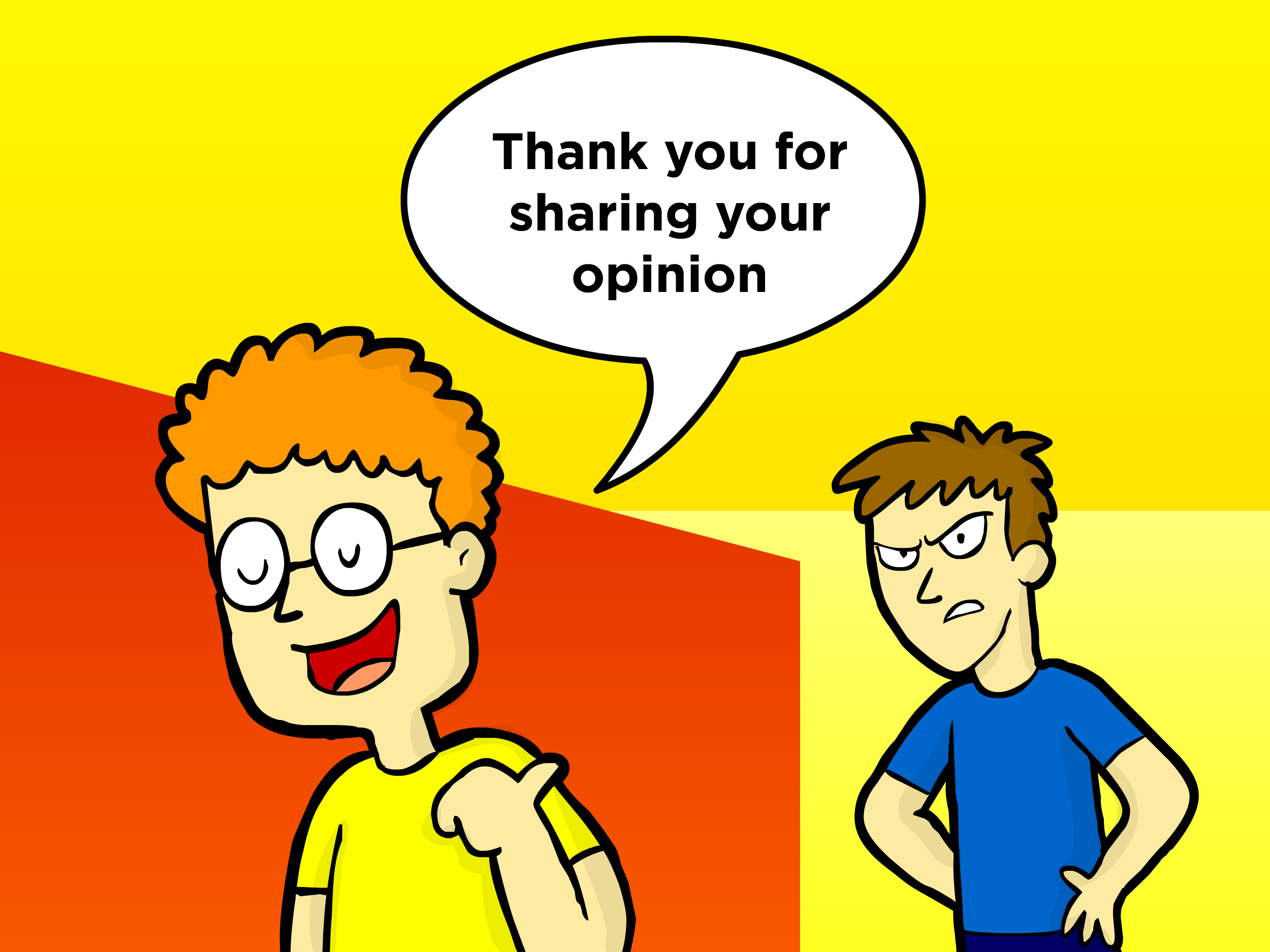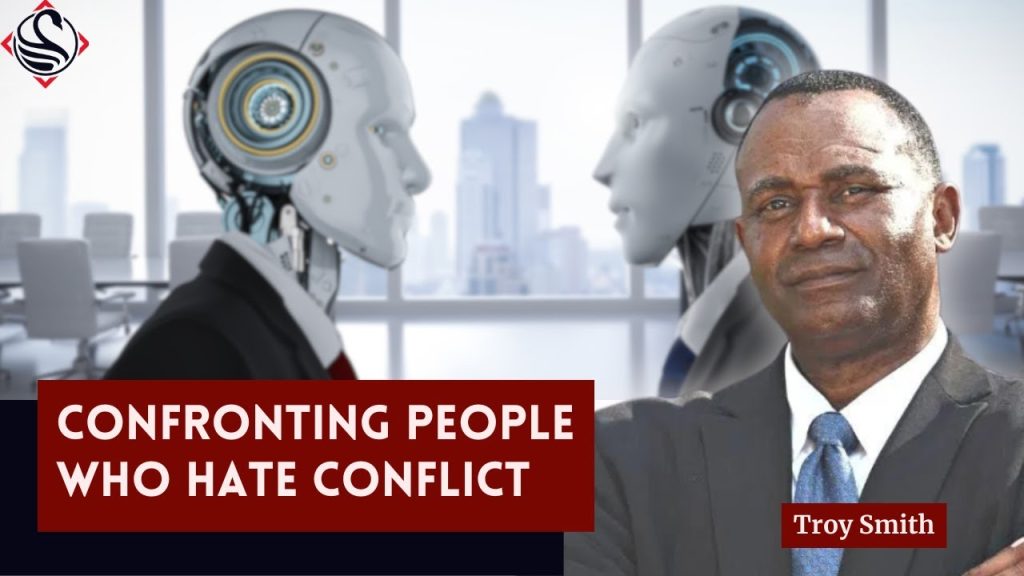Feeling like someone hates you can be an incredibly challenging and emotionally draining experience. Whether it's a conflict with a colleague, friend, family member, or even a stranger, these situations can impact your mental health and overall well-being. However, there are constructive ways to handle such situations and restore harmony in your relationships. Understanding why someone may feel negatively towards you is the first step towards resolution.
Conflict is an inevitable part of life, but it doesn't have to define your relationships or your self-worth. Learning how to navigate through situations where someone hates you can empower you to take control of your emotions and approach the situation with maturity and grace. In this article, we will explore various strategies and insights to help you manage and resolve conflicts effectively.
By the end of this guide, you'll have a clear roadmap on what to do if someone hates you, including actionable steps, psychological insights, and practical advice. Let’s dive into the details and equip yourself with the tools necessary to handle these difficult situations.
Read also:Womens Japanese Style Clothing A Fusion Of Tradition And Modernity
Table of Contents
- Understanding Why Someone Hates You
- The Biological Perspective of Hate
- Common Causes of Hatred in Relationships
- The Emotional Impact of Being Hated
- Steps to Take If Someone Hates You
- Effective Communication Techniques
- The Importance of Self-Reflection
- When to Seek Professional Help
- How to Move Forward After Conflict
- Conclusion: Embracing Growth Through Conflict
Understanding Why Someone Hates You
Before we delve into what to do if someone hates you, it’s essential to understand the root causes of such feelings. Hate is a complex emotion that can stem from various factors, including misunderstandings, jealousy, or even unresolved personal issues on their part.
Breaking Down the Concept of Hate
Hate is often a reaction to perceived threats or negative experiences. It’s important to recognize that hating someone doesn’t always mean they have done something wrong. Sometimes, it's more about the other person's perspective or emotional state.
- Perceived betrayal or injustice
- Unresolved conflicts
- Jealousy or insecurity
- Miscommunication or misunderstanding
The Biological Perspective of Hate
From a scientific standpoint, hate activates specific areas of the brain, similar to love but with distinct differences. Research has shown that when we hate someone, our brain releases certain chemicals that can affect our mood and behavior.
According to a study published in the journal PLoS One, hate involves the activation of the insula, a part of the brain associated with disgust and emotional processing. This biological response can intensify feelings of animosity and make it harder to resolve conflicts without addressing these underlying emotions.
Common Causes of Hatred in Relationships
Understanding the common causes of hatred can help you better navigate situations where someone dislikes you. Below are some of the most frequent reasons people develop negative feelings towards others:
1. Miscommunication
One of the leading causes of hatred in relationships is miscommunication. Words can easily be misinterpreted, especially in written communication or during stressful situations.
Read also:Salted Muse Parfum A Journey Into The World Of Luxury Fragrance
2. Jealousy
Jealousy can lead to resentment and hatred, particularly when someone feels threatened by your achievements or relationships.
3. Past Trauma
Sometimes, people project their past traumas onto others, leading to feelings of hatred that may not be directly related to you.
The Emotional Impact of Being Hated
Being hated by someone can have a profound emotional impact on your mental health. It’s normal to feel hurt, anxious, or even angry when someone expresses hatred towards you. However, it’s crucial to manage these emotions constructively to avoid further damage to your well-being.
Coping Strategies
- Practice mindfulness and deep breathing exercises
- Seek support from friends or family
- Engage in activities that bring you joy and relaxation
Steps to Take If Someone Hates You
Now that we’ve explored the reasons behind hatred, let’s discuss what to do if someone hates you. Below are actionable steps you can take to address the situation effectively:
1. Reflect on the Situation
Take some time to reflect on the relationship and identify any potential triggers for the hatred. Ask yourself if there’s anything you might have done to contribute to the conflict.
2. Communicate Openly
Open communication is key to resolving conflicts. Reach out to the person and express your desire to understand their perspective and work towards a resolution.
3. Practice Empathy
Try to see the situation from their point of view. Empathy can help bridge the gap and foster mutual understanding.
Effective Communication Techniques
Effective communication is vital when dealing with someone who hates you. Below are some techniques to help you communicate more effectively:
Active Listening
Listening actively means giving the other person your full attention and acknowledging their feelings without interrupting or judging.
Non-Verbal Cues
Your body language and tone of voice can significantly impact how your message is received. Maintain eye contact, speak calmly, and avoid defensive gestures.
The Importance of Self-Reflection
Self-reflection is a powerful tool for personal growth and conflict resolution. By examining your own behavior and motivations, you can gain valuable insights into how to improve your relationships.
Consider the following questions for self-reflection:
- What might I have done to contribute to this conflict?
- How can I change my approach to improve the situation?
- What are my own emotional triggers in this relationship?
When to Seek Professional Help
Some conflicts may require the intervention of a professional mediator or therapist, especially if the situation is deeply rooted or emotionally charged. Seeking help doesn’t mean you’ve failed; it shows a willingness to resolve the issue constructively.
Therapeutic Approaches
Cognitive Behavioral Therapy (CBT) and other therapeutic techniques can help you manage negative emotions and improve your communication skills. A therapist can provide a safe space to explore the underlying causes of the conflict and develop strategies for resolution.
How to Move Forward After Conflict
Once you’ve addressed the conflict, it’s important to focus on moving forward. Building trust and fostering positive relationships takes time and effort, but it’s worth it in the long run.
Forgiveness and Letting Go
Forgiveness is a powerful tool for healing and moving forward. It doesn’t mean forgetting what happened, but rather choosing to release the negative emotions associated with the conflict.
Setting Boundaries
Sometimes, the best course of action is to set healthy boundaries to protect your emotional well-being. Clearly communicate your needs and expectations to avoid future conflicts.
Conclusion: Embracing Growth Through Conflict
In conclusion, learning what to do if someone hates you involves understanding the root causes of the conflict, practicing effective communication, and fostering empathy. While it’s not always easy to resolve conflicts, approaching them with maturity and grace can lead to personal growth and stronger relationships.
We encourage you to take action by reflecting on your own experiences, communicating openly, and seeking help when needed. Share your thoughts in the comments below, and don’t forget to explore other articles on our site for more insights into managing relationships and emotions.
Remember, every conflict is an opportunity for growth. Embrace it with courage and resilience.


